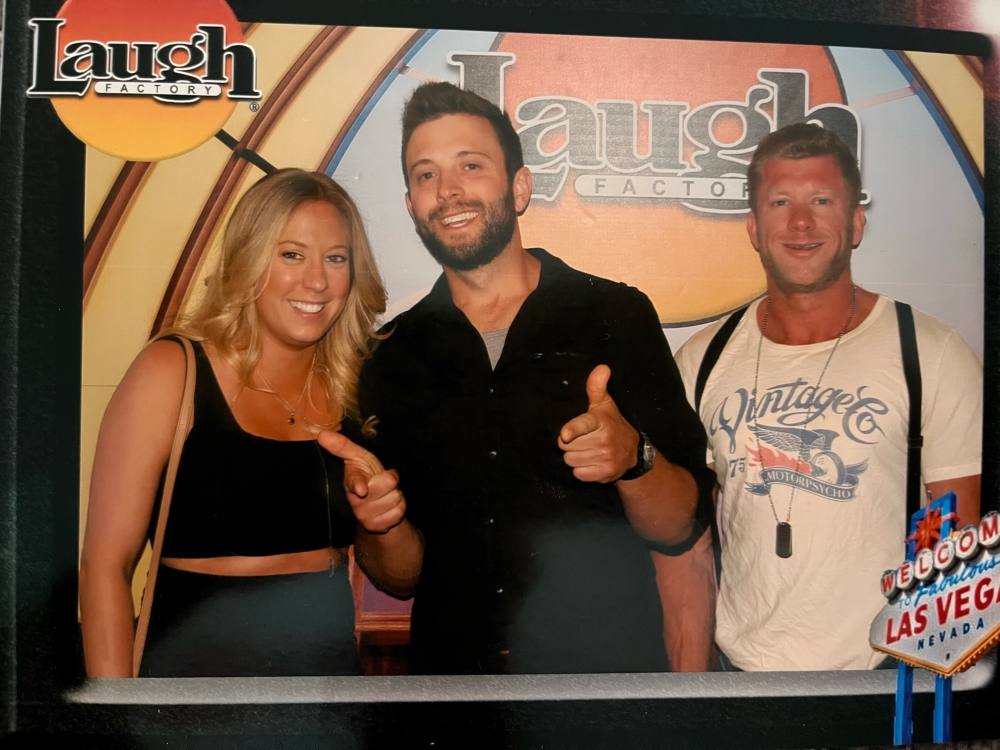[Editor’s note: This story contains graphic details related to police-related injury and body trauma. It may be triggering to some readers.]
When Melissa Gray remembers her brother, she thinks of a spur of the moment trip they took together to Las Vegas just a couple of months before he died.
“He was wearing his suspenders. He would have these phases, like his suspender phase, and he was like, ‘Yeah, this is fashion.’ And he’d just wear them over regular T-shirts,” Melissa said.
Myles Gray was 33 when he died on a hot summer day in 2015 after being confronted by seven Vancouver police officers, who had been called to the area after receiving a report that a man had made a disturbance after confronting a woman about watering her lawn during a drought.
The list of injuries Myles sustained that day are horrific, including a broken voice box, broken eye socket and nose, ruptured testicle, broken ribs and a fractured sternum. But his family’s attempts to get answers about what exactly happened to Myles, and why the police response was so forceful, have been blocked at every turn.
When people die in police-related incidents, what’s often emphasized are the moments leading up to their deaths. But as a coroner’s inquest is set to start this week, his family also wants people to know that Myles was a funny, gregarious man who was quick to make others laugh.

He had a wide circle of friends and a nickname for everyone. He was someone Melissa would turn to when she was feeling frustrated or down; he was always ready to listen. He loved music — the Wu Tang Clan, old school hip hop, rap and metal. He made his home on the Sunshine Coast, where he operated a wholesale florist business that Melissa’s husband, Mike Easson, now runs. On the day Myles died, he was in Vancouver to make a delivery.
“It's going to be 15 days long, and it's going to be all those people testifying about him,” Melissa said of the coroners’ inquest. “And other than what I'm saying, no one's going talk to his character.”
The seven police officers there on the day Myles died are the only living witnesses to what happened. While the Independent Investigations Office concluded there were reasonable grounds to believe the officers may have committed offences, the BC Prosecution Service declined to lay charges.
According to reporting by the CBC and Globe and Mail, four of the officers who have been accused of misconduct related to Gray’s death say they were directed by police union representatives to not take notes after the incident. The CBC also reported that two firefighters say police prevented them from immediately treating Gray when they arrived at the scene, even though he was fully restrained by police and not moving.
Neither the Vancouver Police Union nor the Canadian Police Association responded to The Tyee’s request for comment.
An autopsy report was not able to determine a cause of death for Gray. The report included statements about the possibility that his death was unrelated to police officers’ use of force, including the use of a drug called Kratom that was found in his system or that he may have been suffering from a condition called “excited delirium.”
Myles’ family strongly opposes excited delirium being considered as a possible cause of death.
“That is not a reason,” Melissa said. “That is not a cause of death.”
The term is commonly used in the United States as a cause of death in police-involved fatalities, but health researchers have called the description “essentially meaningless” and called for doctors, medical examiners and first responders to stop using the term. The symptoms of excited delirium supposedly include “superhuman strength” and “police non-compliance.”
Some police officers involved in the altercation with Gray described him as having “superhuman strength.”
Melissa says Myles had been diagnosed with bipolar disorder in high school, but he had been stable for years. Bipolar disorder affects around 88,000 British Columbians. The mental health condition causes periods of severe depression and of hypomania or mania, and can usually be successfully treated with medication.
Based on descriptions of Myles’ behaviour the day he died, Melissa believes he may have been having a manic episode. But Melissa, who works as a psychiatric nurse, says she can’t understand how the incident escalated to the point where Myles had been beaten and pepper sprayed by police as they attempted to arrest him.
“Melissa is a psychiatric nurse who deals with people that are in a different state of mind,” Mike Easson, Melissa’s husband, told The Tyee. “She’s 5-2 to 5-3, like very tiny. She's dealing with all these huge guys. She can handle them by herself. You have seven officers that can't handle one guy?”
Melissa said her family is calling for all police officers to wear body cameras so there is no doubt about what happened during arrests. Six of the officers are also set to face a disciplinary hearing this month on Police Act charges of failing to take notes, while all seven are accused of abuse of authority through the use of unnecessary force.
“We want all of them to lose their jobs,” Melissa said of her hopes for the outcome of the Office of the Police Complaint Commissioner hearing.
But when it comes to the coroners’ inquest, Melissa and Easson said their expectations were low. A coroners’ inquest doesn’t assign blame, but will issue recommendations that could help to prevent future deaths.
It has now been eight years since Myles died. Melissa and Easson said there’s no reason the process needed to drag on for this long.
“We have two kids. Our son turned seven this year, and our daughter’s turning four, and all they know is this case,” Easson said. “They don’t have any years of their lives before this happened.” ![]()
Read more: Rights + Justice


















Tyee Commenting Guidelines
Comments that violate guidelines risk being deleted, and violations may result in a temporary or permanent user ban. Maintain the spirit of good conversation to stay in the discussion and be patient with moderators. Comments are reviewed regularly but not in real time.
Do:
Do not: